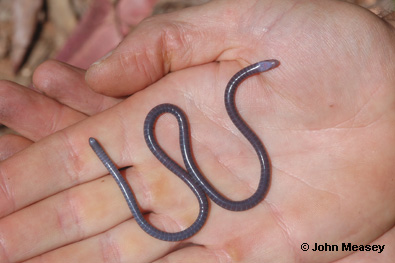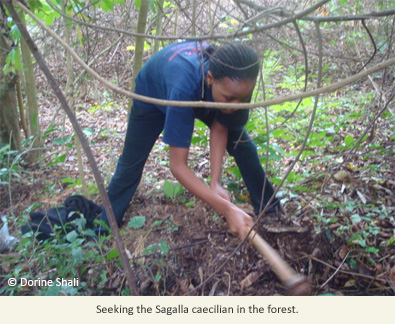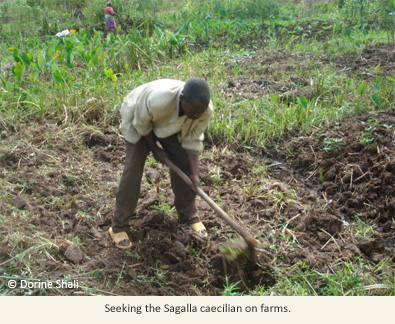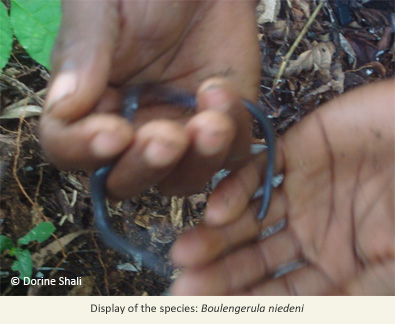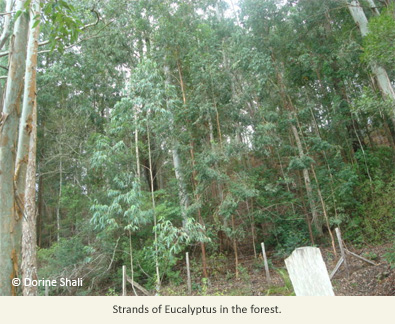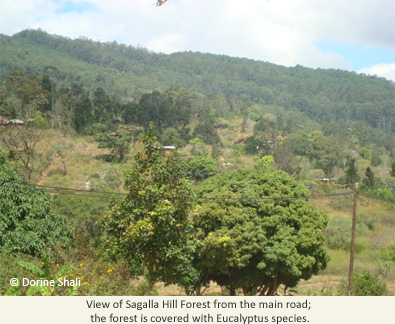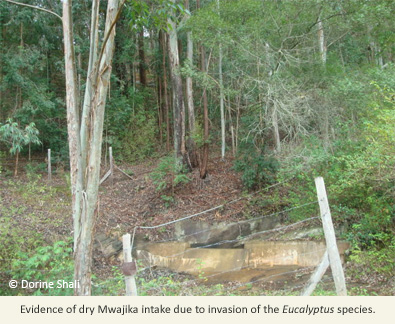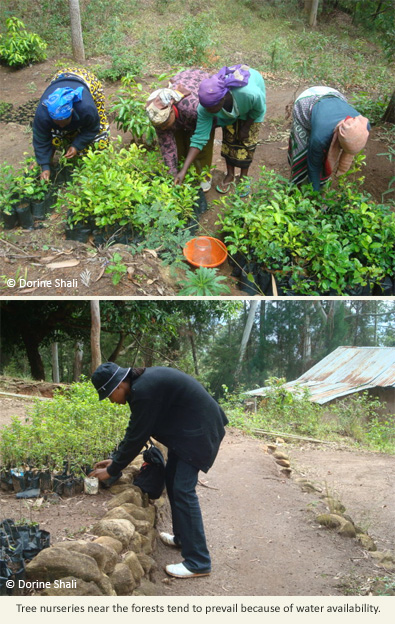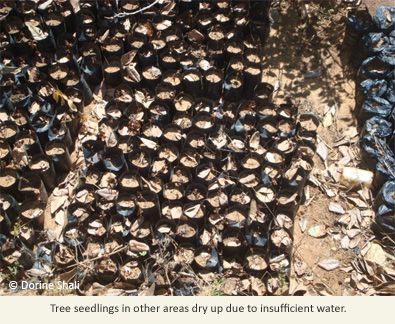EDGE Fellow Dorine Shali has been familiarising herself with her study species, and the problems it faces on Sagalla Hill, Kenya.
A field visit was conducted on 16th -19th June 2009 on familiarization with the Sagalla Caecilian (Boulengerula niedeni).
After the public meetings which were organized in each of the villages surrounding Sagalla forest, several highlights were made on the importance of maintaining indigenous forest cover both for the local livelihood, water catchment function and for the conservation of biodiversity within the area and beyond.
During the visit the weather was dry making it challenging to trace the Sagalla caecilian. However from previous research it was found in areas with black moist soil under indigenous forest cover and on farms that adjoin the streams as evidenced in the pictures below.
The habitat for the species is decreasing in extent due to invasion/colonization by Eucalyptus (replacing indigenous vegetation) and conversion to farms.
The conversion of the exotic plantations into indigenous forest cover will improve the water situation in the area thus recreating the niche for the Sagalla caecilian. Several groups with existing tree nurseries were identified, most of which are planting indigenous seedlings, which will be used to rehabilitate the Sagalla Hill forest. The major challenge facing the productivity of these tree nurseries is lack of water. Individuals travel long distances in search of water which turns out to be insufficient to raise the seedlings.
Provision of water storage tanks will be one option towards sustenance and the raising of these seedlings. Other ways of improving the water situation include the introduction of fish farming as an alternative livelihood option which will stop the draining of wet areas for cultivation thus contributing to maintaining/improving the niche of the Sagalla caecilian.
If you would like to support the conservation research and activities of EDGE Fellows, such as Dorine, then please become an EDGE Champion, or donate here.
